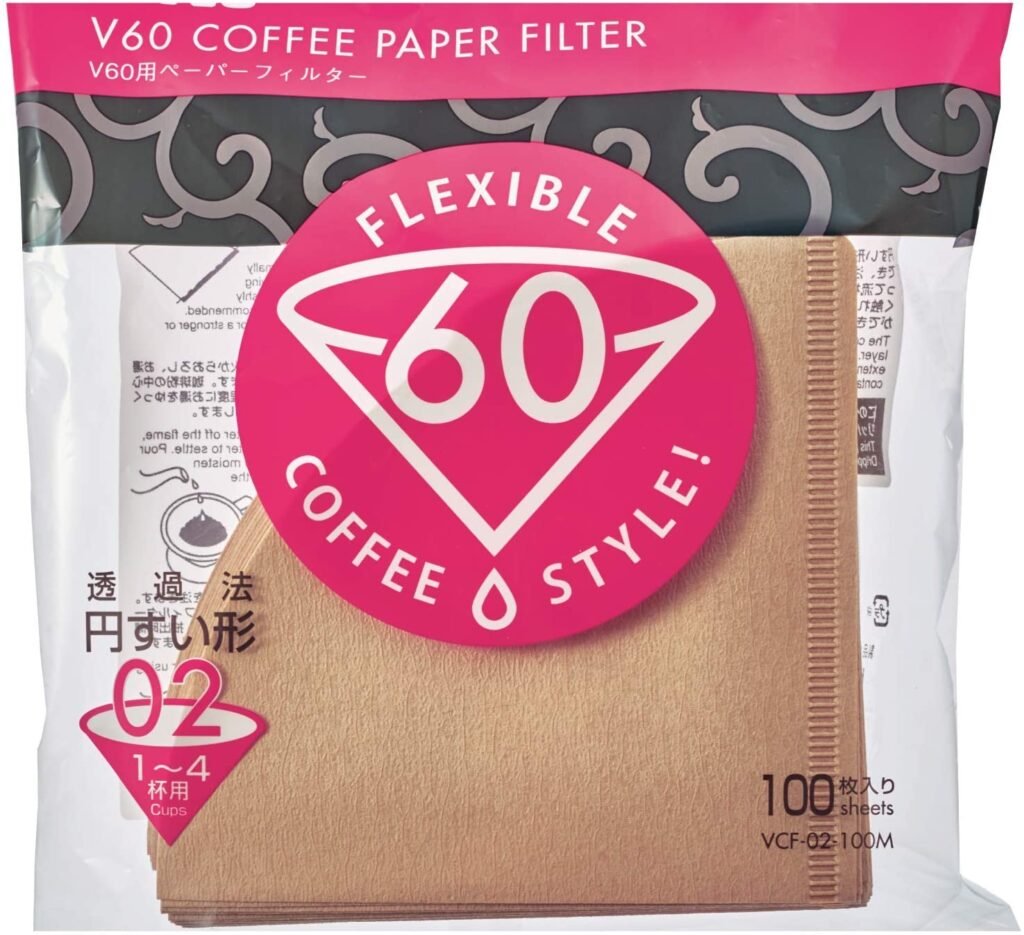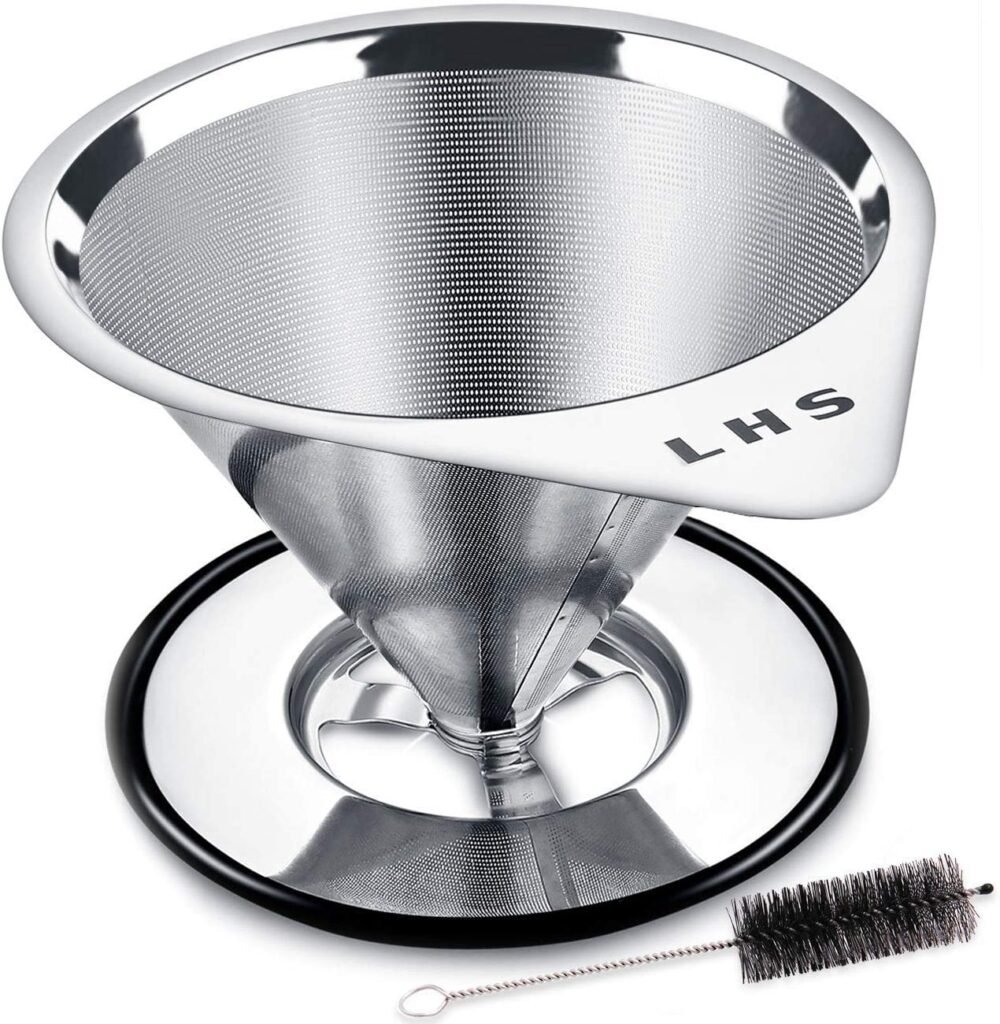When you’re talking about brewing coffee, opinions tend to be strong. We’re not talking about beans, roast, or even the type of coffee maker – but the coffee filter. And there’s a lot to consider when selecting your coffee filter. It might be the last thing you think about when you’re putting a fresh pot on to brew, but coffee filters can make a real difference in how your coffee tastes. Coffee filters don’t just keep the grounds out of your coffee, they can also absorb more or less all of the oils that accompany a particular blend. Coffee oils, which are the source of coffee’s bold flavor, are absorbed by paper or cloth filters. More absorption, less flavor.
Types of Coffee Filters
There are important factors to consider when you’re choosing a coffee filter. Take each of these into consideration when you are comparing the various types of coffee filter.
Paper Filters
Paper coffee filters are constructed to fit specific sizes and shapes of coffee maker baskets – think cone or flat-bottomed shapes. They can vary in thickness. Paper filters are made of either bleached or unbleached paper. Cheaper brands will be made of thinner paper, and provide less filtering of the coffee oils. They’re available in multi-packs and are meant for one-time use.

Hario V60 Paper Coffee Filters, Size 02, Natural, Tabbed
Metal Filters
Metal coffee filters are made from a finely woven wire mesh – usually, it is stainless steel coated with gold plating – these are referred to as “gold tone”. The wire mesh filters out grounds, but not oils, yielding a more robust flavored coffee. They are also available in flat or cone-shaped styles to fit all types of coffee makers. They aren’t absorbent, don’t soak up any coffee oils, and will last a long time.

LHS Slow Drip Coffee Filter Metal Cone Paperless Reusable
Nylon Filters
Some coffee filters are made from a fine nylon mesh that has been mounted to a plastic basket. They have similar filtration qualities to the metal filters, and are also available in cone and flat-bottomed styles. Nylon coffee filters are typically cheaper than metal filters, but they’re less durable. However, if you’re careful with cleaning and handling, they’ll still last a long time.

3Pcs Reusable Filter Bags Mesh Nylon Bags for Nut Milk, Coffee, Juice 74 Micron 8″ x 12″
Cloth Filters
Cloth coffee filters are usually made from a natural fabric like cotton or muslin. They are dropped into the filter basket, where they allow more of the coffee grounds to flow through than paper, due to the larger size of the fabric weave openings. They’re reusable for several months.

The Green Polly Organic Hemp Cloth Coffee Filter Cone No. 4, 3-Pack, Reusable | Zero-Waste and Eco-Friendly
Unbleached filters don’t have that bright white look of their bleached counterparts, but they are more natural and much more environmentally friendly. All paper has that brown look and has to be bleached to look white. Unbleached filters don’t undergo that manufacturing process and when they break down the resulting chemicals put back into the ground are nowhere near as harmful as bleaches such as chlorine. Many people believe that using a bleached or unbleached coffee filter will alter how your coffee tastes, and they are often surprised to find out that isn’t the case at all. The fact is that it doesn’t really matter which one you choose as it won’t change the taste of your coffee.
Shape of Filters
Firstly, conical or cone style filters tend to be the favorite among more dedicated home brewers. They come in two basic types. One is shaped like a standard cone, like a party hat. The other also has a round opening, but instead of coming to one point at the tip, it has two side that taper into a shorter line.
The filter shape that likely comes into your head when someone mentions a “coffee filter” is the basket filter. Also called the cupcake or-flat bottom filter, these filters are either shaped like cupcake liners with folds around the sides or like buckets with smooth edges. Their openings at the top can be larger than the surface area at the bottom, but the difference is not nearly as extreme as conical filters.
Lastly, we have the disk filter. These are mainly used for AeroPresses and occasionally as replacements for French Press filters. Disk filters are much smaller than the other two and do not follow the standard sizing rules we will discuss later. You typically have to buy them specifically for your brewing tool.
